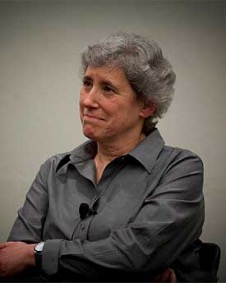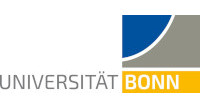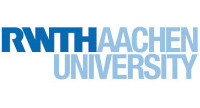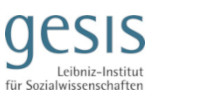Autonomy in the Digital Age:
Rethinking Relationships between
Humans, Technology and Society
An international Conference of the Research Group
“Autonomy and autonomous Systems”
of the Universities Bonn & RWTH Aachen
20th – 22nd of November 2022
University of Bonn/Germany (and online)
Call for Papers
Autonomy, originally a core concept of the Enlightenment epitomizing aspirations of modernity, has become one of the central and particularly high-profile concepts in debates on digital transformations.
The discourse figures of this debate mostly comprise a polarizing perspective that oscillates between the restrictive or dangerously uncontrollable effect of digital technologies, such as facial recognition, surveillance or 'autonomous weapons' and the liberating, autonomy-enhancing function ('smart home', 'assisted living'). Contexts of application include e.g. administration, military and police, social and health-related services, medicine and education, and not to forget, the digital economy with its diverse challenges regarding the future of work. Today, in times of digitalization, datafication, and an increasing influx of artificial intelligence into many sectors of society, the concept of autonomy needs re-definition and reflection under contemporary technological conditions.
Our starting point for the reflections on understanding of autonomy in the digital age is a conceptual sensitivity that asserts the possibility of autonomy for both personal-subjective and collective-social relations. On both levels, conditions for autonomy are subject to rapid change. Outlining the distinction between autonomous and automatic systems, different degrees of autonomy can be distinguished - from weak forms, in which it is a matter of gradual absence of external control, to strong forms, in which the respective 'autonomous' entity is able to set its own laws (rules).
With the development of Artificial Intelligence (AI) systems and the increasing use of robots in everyday life technological transformations have come along with social changes and new conflicts. Questions of privacy and data use, the future of work or the subsequent dawn of a 'post-capitalist' society, as well as the discussions about the consequences of autonomously acting combat robots and the ethical regulation of warfare are just a few examples of the present challenges and those still to come. Meanwhile, discourses of technological autonomy address an array of issues concerning the future of democracy. Global digital dependencies, the delegation of authoritative power and the rise of global platform companies challenge the political autonomy of democratic states and their technological sovereignty. On a cultural level, the integration of autonomous systems into society launches a discussion about a technologically induced crisis of humanist values and question the ideals of the enlightenment for today’s socio-technical practices. Studies related to trans- or posthumanism construe technologies as an opportunity to improve or even overcome the human condition. Visions of human enhancement, virtuality, cyborg-societies mingling with autonomous machines and artificial superintelligence might sound utopian today, but perhaps not anymore tomorrow. The reasoning in both optimistic assumption and skeptical anticipation illustrates the urgency of re-defining not just our idea of personal autonomy within the digital, and datafied society but also the need to theorize and analyze new forms of autonomy to understand the next phase of digital society. Interdisciplinary research on the concept of autonomy is needed in order to substantiate our normative, functional, and epistemic claims on the development of the relationship between humans and technology in the future.
The conference “Autonomy in the Digital Age: Rethinking Relationships between Humans, Technology, and Society” aims to encourage a conversation among all disciplines interested in issues concerning ‘Autonomy and Technology’, allowing for diverse and interdisciplinary perspectives. We intend to explore the significance of autonomous living in our digital societies, to question the humanist concept of autonomy itself in our technological reality and to analyse the implications of our interaction with (semi)autonomous systems.
Submissions from all social sciences, humanities and technology disciplines related to the following topics and questions are highly welcomed, but do not need to be limited to these:
Section 1: Theoretical approaches & interdisciplinary perspectives:
How are digital data practices in public and private life enabling or hindering informational self-determination? How do we reconfigure notions like privacy and surveillance? How will the growing influence of autonomous systems affect social structures, political systems, labour and governmental control measures?
Section 2: Contexts:
How are (emerging) modes of (technical) autonomy and agency reshaping societies and personal life-worlds? Which different puzzles of “autonomy” emerge in practical contexts and fields from art, medicine and political institutions? Are we as a digital society at the beginning of a cultural opposition of humanism and technicity? How can cultural and systemic differences in technology policy be reflected and specified on the basis of the innovation of autonomous systems?
Section 3: Norms and ethics:
Which (post-Eurocentric) epistemologies and vocabularies question/enrich the debates about “autonomy” and Humanism in the new digital reality? Are agens/patiens ethics suitable as a theoretical framework for ascribing moral status (person and actor status) to autonomous systems? Should autonomy be understood as an intrinsic quality or as an effect in a relationship characterized by power relations? What normative requirements must autonomous systems and infrastructures meet in an ethically engaged digital society?
Section 4: Conversations:
How to conceptualize Human-Machine Interaction and machine-machine interactions in social sciences? Are individualistic or collectivistic designs of the digital society the vanishing point of technical autonomy issues? What is the status of the idea of autonomy in a digital society in which mutually autonomous interactions between humans and technology have become a reality?
Section 5: Systems and machines:
What degree of autonomy do we ascribe to robots? What synergies arise from the collaboration between humans and autonomous systems in different contexts? What role do autonomous robots play in hybrid decision-making-processes? Can autonomous robots be conceptualized as part of an automated process? Which criteria guide the human-centered design of autonomous systems?
Autonomy in the Digital Age: Rethinking Relationships between Humans, Technology and Society - Final Report
From November 20 to November 22, 2022 the transregional research group 'Autonomy and Autonomous Systems' invited to the international conference 'Autonomy in the Digital Age: Rethinking Relationships between Humans, Technology and Society' at the Universitätsclub Bonn e.V. Together with researchers from the USA, Israel, France, Austria, Great Britain, Denmark and Turkey and inspired by keynotes by Karin Knorr Cetina, Abraham Newman and Lucy Suchman, the participants discussed the reconfiguration of autonomy in the digital present. Political, technical, philosophical and sociological panels with a total of 22 contributions reflected on technologies such as autonomous weapon systems, humanoid robots, artificial intelligence and digital infrastructures in an open and diverse dialogue.
Karin Knorr Cetina (Chicago/USA) opened the conference on November 20 and illustrated with her fundamental contribution 'Epistemic Shifts in the Digital Age: From Loving the Data to Loving Automation' the crucial role of automated data cultures in the digital production of knowledge. Today's artificially intelligent science is already transforming itself into a domain of autonomous technization - an epistemic future of digital societies whose implications remain to be explored and understood.
In the political sphere, the effects of such a technization of economic infrastructures are already apparent. Abraham Newman (Washington/USA) demonstrates in his keynote address 'Europe in a Geo-economic Age: Digital Sovereignty or Digital Dependance' on day two of the conference how digital information, finance and production networks can become a susceptible arena for political tensions. European foreign and domestic policies are navigating emerging technological chokepoints that are increasingly instrumentalized and militarized in the geopolitical tensions between the United States, China, and Russia.
In addition to state autonomy, however, the autonomous age of digital technology is also causing shifts in individual and everyday self-understanding. In Panel 1 'Autonomy in interdisciplinary Approaches' Gabriele Gramelsberger (Aachen/Germany) and Maximilian Mayer (Bonn/Germany) work on the phenomenological condition of the individual in the digital world and examine how socio-technical changes affect our notion of the democratic subject. Bert Heinrichs (Bonn/Germany) and Dieter Sturma (Bonn/Germany) use a comparison of human and technical symbolic behaviour to illustrate that the attribution of autonomy must address the logical space of reasons and that autonomous systems can contribute to a humanization of our lifeworld. Aviv Gaon (Herzliya/Israel) and Jens Papenburg (Bonn/Germany) point out the social and cultural implications of a hybrid shared space of action between humans and autonomous technology on the basis of concrete application scenarios of autonomous driving and listening devices.
In the political panel 2 'Democracy, Digitalization, Socio-technical Transformations' Peter Hägel (Paris/France), Anne Hoss (Hamburg/Germany), Thomas Bächle (Bonn/Germany) and Jascha Bareis (Karlsruhe/Germany) elaborate on the socio-technical transformations of the digital conception of society on a theoretical and reflexive level. Peter Hägel notes a divergence between fully digitized everyday experience and the democratic legislative apparatus in solving problems. Anne Hoss argues for Ivan Illich's notion of conviviality as a framework for the study and evaluation of technological progress. Thomas Bächle and Jascha Bareis provide an analytical contribution to the political instrumentalization of the discourse surrounding autonomous weapons systems.
Panels 3 'Tensions of Multiperspectivity' and 4 'Hybridization and Companionship' focus in a parallel session on different application scenarios of robotics and artificial intelligence. Irina Zakharova (Bremen/Germany) discusses automatic and autonomous systems in the digital educational apparatus and asks how this datafied educational practice should be evaluated from a feminist perspective. Lilli Bruckschen (Bonn/Germany) delves further into the topic of education and examines how robotic systems influence learning receptivity when teaching basic computer science. In a theoretical excursus, Benjamin Peters (Aachen/Germany) concludes Panel 3 with an alternative genealogy of artificial intelligence from the history of the Soviet Union. In parallel, Ayanda Rogge (Dresden/Germany) gives a literary review of the design paradigm of artificial companionship in panel 4 and explains the foundations of a resilient interaction between humans and machines. Caja Thimm (Bonn/Germany), Sven Stumm (Aachen/Germany) and Sigrid Brell-Cokcan (Aachen/Germany) deepen the topic of human-autonomy teaming with a contribution on the degree of autonomy of technical systems in construction, before Frank Piller (Aachen/Germany) and Kathleen Diener (Aachen/Germany) conclude by adding the economic context and explore the division of labor between humans and machines in hybrid-intelligent innovation teams in product design.
The second day of the conference was concluded by the third keynote, 'Strategic Autonomies: Some reflections on the politics of autonomous systems'. In her talk, Lucy Suchman (Lancaster/England) illustrates how Science and Technology Studies, beginning with Langdon Winner in the 1970s, reinterprets the faculty of autonomy from an instrinsic characteristic to the effect of specific discourses, political economies, and material practices, and what implications this reinterpretation has for the call for meaningful human control.
Day three of the conference opened with Panel 5 'Robots between Norms and Control'. Sigrid Brell-Cokcan and Sven Stumm revisit human-machine collaboration in construction, with a particular focus on communication in dynamic environments. Christoph Ernst (Bonn/Germany) and Ingvild Bode (Odense/Denmark) take a closer look at autonomous weapon systems, highlighting on the one hand the importance of the human-machine interface in the analysis of such systems (Ernst) and also emphasizing the role of discourse practices in determining normativity in technology evaluation (Bode).
In the last panel of the conference, 'Medicine and Care', the medical space of action as an application scenario is discussed in more detail by the contributions of Kathrin Friedrich (Bonn/Germany), Jared Parmer (Aachen/Germany) & Hendrik Kempt (Aachen/Germany) as well as Maximilian Braun (Munich/Germany) and Svenja Breuer (Munich/Germany). Kathrin Friedrich highlights how the human body is adapted to radiosurgical robotics. From an ethical perspective, Jared Parmer shows how technical systems in a medical context can support the process of autonomous decision making. Also focusing on human self-determination, Maximilian Braun and Svenja Breuer ask to what extent the notion of personal autonomy needs to be reconfigured in the context of robotically assisted geriatric care.
From the speaker group of the initiative 'Autonomy and Autonomous Systems' Gabriele Gramelsberger, Maximilian Mayer and Caja Thimm summarize the manifold research results and perspectives in a concluding overview to the conference and emphasize the enormous potential of interdisciplinary and international project networks for the research of autonomous systems as a technological condition of the digital present.
The research group 'Autonomy and Autonomous Systems' would like to thank all participants in presence and via Zoom for their interesting contributions, for the lively discussion and for their willingness to participate and shape an interdisciplinary discourse! A very special thanks goes to Karin Knorr Cetina, Abraham Newman and Lucy Suchman for their intriguing contributions to the conference program.
Keynote Speakers
We are pleased to announce the keynote speakers for the conference:

Prof.Dr. Lucy Suchman
University of Lancaster, England
Research:
Anthropology in Science and Technology Studies, Cultural imaginaries, Material practice
Publication (Selection):
- Human-Machine Reconfigurations: Plans and situated actions (2nd edition). Cambridge University Press, 2007.
- Toward a critique of algorithmic violence. In: International Political Sociology. 15, 1, p. 121-150, 2021
- with Jutta Weber. Human-machine autonomies. In: Autonomous weapons systems. Cambridge: Cambridge University Press p. 75-102, 2016.

Prof. Dr. em. Karin Knorr Cetina
University of Constance, University of Chicago
Research:
Sociology of Finance, post-social theory, epistemic cultures, globalization
Publication (Selection):
- Epistemic Cultures. How the Sciences Make Knowledge, [1999], Harvard University Press Cambridge (Mass.) 2003.
- The Manufacture of Knowledge. An Essay on the Constructivist and contextual Nature of Science, Pergamon Press, Oxford 1981.
- 2011 (Ed. w/ A. Preda) Handbook of the Sociology of Finance. Oxford University Press.

Prof. Dr. Abraham Newman
Georgetown University, USA
School of Foreign Service and Department of Government
Research:
Economic interdependence, Globalization, International Politics
Publication (Selection):
- Of Privacy and Power: The Transatlantic Struggle over Freedom and Security, with Henry Farrell. Princeton: Princeton University Press. 2019.
- Voluntary Disruptions: International Soft Law, Finance and Power, with Elliot Posner, Oxford: Oxford University Press. 2018.
- The Janus Face of the Liberal International Order: When global institutions are self-undermining, with Henry Farrell. International Organization. 2021.
Organization
Prof. Dr. Caja Thimm (Sprecherin), Prof. Dr. Maximilian Mayer (Co-Sprecher, Bonn)
Prof. Dr. Gabriele Gramelsberger (Sprecherin, Aachen)
Contact
Prof. Dr. Caja Thimm (Sprecherin), Prof. Dr. Maximilian Mayer (Co-Sprecher, Bonn)
Phillip Engelhardt, M.A. (Wissenschaftliche Hilfskraft)
Venue
Universitätsclub Bonn
Konviktstraße 9
53113 Bonn
Services
Call for Papers
Program (incl. ZOOM Access Data)
Abstracts



